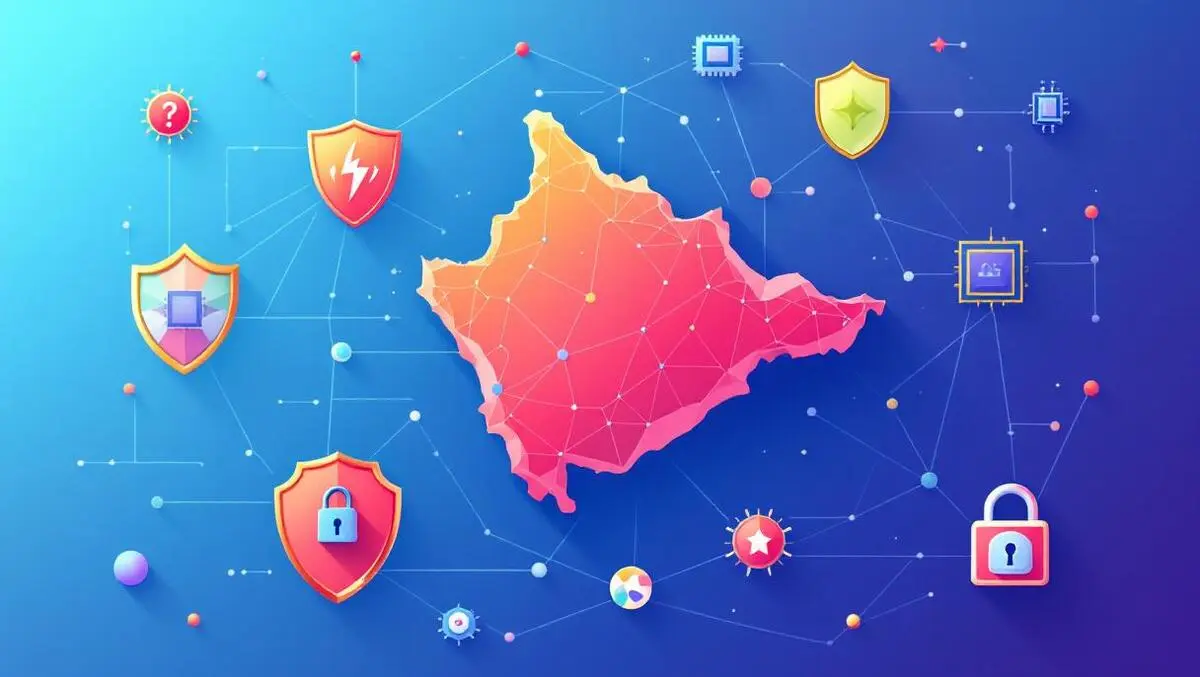
Fiji partners with Borderless CS to boost cybersecurity governance
Fiji's Deputy Prime Minister, Manoa Kamikamica, has engaged in a strategic dialogue with Borderless CS as the country seeks to strengthen its cybersecurity governance and digital resilience.
The meeting brought together senior members of Borderless CS, including Chief Executive Officer Jayaprakash (JP) Muthusamy, Advisory Board Member Joel Abraham, and Director of Cybersecurity Practice Krishneel Kumar, for a discussion that focused on the development of a comprehensive vision for Fiji's digital security framework.
The critical role of cybersecurity governance
The discussion underscored the urgency of digital resilience in an era where cyber threats are increasingly sophisticated and borderless, affecting both public and private sectors. Cybersecurity, participants agreed, is a national priority that underpins crucial services like healthcare, finance, education, and energy. A single cyber incident has the potential to disrupt essential services, compromise sensitive data, and undermine public trust.
A structured cybersecurity governance approach, it was argued, equips countries with mechanisms to anticipate, respond to, and recover from cyber incidents efficiently. Key features of effective governance highlighted in the dialogue included clear allocation of roles and responsibilities across sectors, robust enforcement of standards, and increased information sharing during incidents. Strengthening such governance, according to the parties, is fundamental to safeguarding Fiji's digital future as the country embraces further digital transformation and seeks greater participation in the global economy.
Borderless CS leadership's approach
The strategic exchange was facilitated by Borderless CS's leadership team, each member contributing specific expertise relevant to Fiji's ambitions.
JP Muthusamy, as CEO, focused on sustainability and local adaptation. With years of experience steering global companies through digital transformation and cyber risk management, he brings a strategic approach that balances cutting-edge technology with real-world applications. In Fiji, his focus was on building a sustainable and tailored governance model—one that adapts to local needs but aligns with international best practices.
Joel Abraham, Advisory Board Member, added a dimension of policy insight. He contributes a unique blend of public policy insight and business acumen. As a trusted voice on Borderless CS's Advisory Board, his understanding of regional development and governance helped frame the conversation in a way that was both aspirational and practical for Fiji's government.
Krishneel Kumar, Director of Cybersecurity Practice, addressed technical frameworks. She is the technical engine behind the operation. With a deep background in infrastructure, threat intelligence, and incident response, he brought actionable insights to the table—particularly on how to set up and scale critical cybersecurity systems like CERTs and SOCs.
Key topics and recommendations
The dialogue examined four core pillars for enhancing Fiji's cybersecurity maturity.
First, the group discussed establishing a central cybersecurity governance framework by creating a national cybersecurity policy, forming a cross-agency cyber committee, defining clear lines of communication and authority in incident response, and integrating public-private sector collaboration. Such a framework would foster risk management, accountability, and fast threat response, as well as ensure alignment with international standards such as ISO 27001 and the NIST Cybersecurity Framework.
Second, uplifting Fiji's Computer Emergency Response Team (CERT) was a major focus. The Borderless CS team shared strategies for expanding CERT's staffing and technical knowledge, enhancing real-time threat monitoring capabilities, encouraging collaboration with regional and international CERTs, and instituting regular simulation and response drills. This approach aims to make Fiji better equipped to address a spectrum of cyber threats targeting both government and private entities.
Third, the proposal to establish a National Security Operations Centre (SOC) was tabled, using a phased approach: design and set-up, talent recruitment and training, network integration, and intelligence sharing with regional partners. The aim is to create a central point for nationwide monitoring, alert management, and response to cyber incidents.
A fourth area of discussion was the importance of cyber awareness and education. Borderless CS expressed a commitment to supporting comprehensive training for government officials, key industries, educational institutions, and the broader public. The inclusion of cybersecurity in the national curriculum was identified as a critical step, on the basis that long-term resilience must begin with education.
Building national digital resilience
This wasn't just a surface-level exchange—it was a full-scale strategic session, covering every major pillar of cybersecurity that Fiji needs to secure its digital future.
The collaborative approach outlined by Borderless CS provided a roadmap for Fiji to develop and sustain digital resilience. By reinforcing systems, fostering local expertise, and adopting international standards, the partnership seeks to position Fiji as a model for cybersecurity governance in the region.
The dialogue concluded with a shared understanding that persistent cyber threats require coordinated action and continued investment in governance, technology, and awareness. Both the government of Fiji and Borderless CS noted that the strategic partnership marks the beginning of a structured effort to advance national and regional cybersecurity capabilities.


